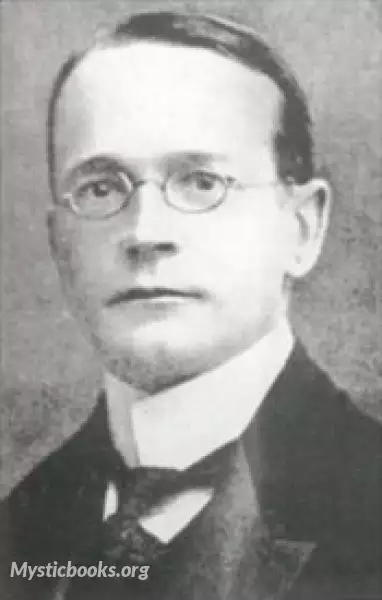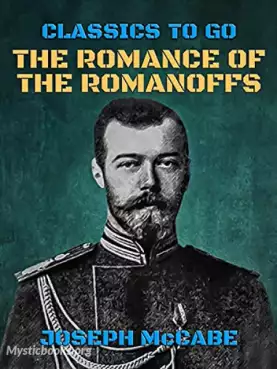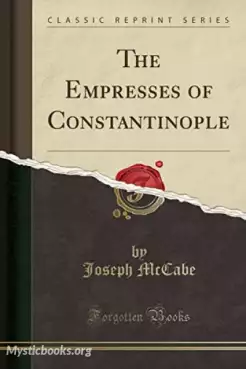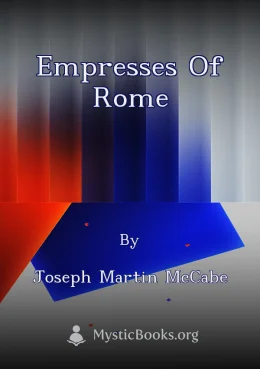
Timeline
Title
Country/Nationality
Joseph Martin McCabe
Joseph Martin McCabe was an English writer and speaker on freethought, after having been a Roman Catholic priest earlier in his life. He was "one of the great mouthpieces of freethought in England". Becoming a critic of the Catholic Church, McCabe joined groups such as the Rationalist Association and the National Secular Society. He criticised Christianity from a rationalist perspective, but also was involved in the South Place Ethical Society which grew out of dissenting Protestantism and was a precursor of modern secular humanism.
McCabe was born in Macclesfield in Cheshire to a family of Irish Catholic background, but his family moved to Manchester while he was still a child. He entered the Franciscan order at the age of 15, and spent a year of preliminary study at Gorton Monastery. His novitiate year took place in Killarney, after which he was transferred to Forest Gate in London (to the school which is now St Bonaventure's Catholic School) for the remainder of his priestly education. In 1890 he was ordained into the priesthood with the name Father Antony
He was recognised as an outstanding scholar of philosophy, and was sent for a year (1893–1894) to study at the Catholic University of Louvain. Here he was successfully taught Hebrew by Albin van Hoonacker, and, less successfully, Syriac by T. J. Lamy. He also studied under, and befriended, Mercier. He returned to London and resumed priestly and educational duties, until in October 1895 when he was put in charge of the newly founded Franciscan college in Buckingham, (which is now St Bernardine's Catholic Church, Buckingham). He had gradually been losing his faith and eventually left that post and the priesthood in February 1896.
Shortly after leaving the priesthood, McCabe began writing. He wrote a pamphlet on his experiences, From Rome to Rationalism, published in 1897, which he then expanded to book length as Twelve Years in a Monastery (1897). William Ferguson wrote of him: "He was bitterly anti-Catholic but also actively undermined religious faith in general." From 1898 to 1899 he was secretary of the Leicester Secular Society, and he was a founding board member in 1899 of the Rationalist Press Association of Great Britain. He wrote prolifically on science, religion, politics, history and culture, writing nearly 250 books during his life. Many of his books and pamphlets were published by E. Haldeman-Julius, both as Little Blue Books and Big Blue Books. Over 100 Big Blue Books by McCabe were published.
McCabe was also respected as a speaker, and gave several thousand lectures in his lifetime.
McCabe was also an advocate of women's rights and worked with Mrs. Pankhurst and Mrs. Wolstenholme-Elmy on speeches favoring giving British women the right to vote.
McCabe is also known for his inclusion in G. K. Chesterton's book Heretics. In a previous essay he took Chesterton to task for including humor in his serious writings. By doing so, he allowed Chesterton to make the quip "Mr. McCabe thinks that I am not serious but only funny, because Mr. McCabe thinks that funny is the opposite of serious. Funny is the opposite of not funny, and of nothing else."
McCabe was also active in organizations, although his biographer notes that he had a difficult relationship with some of their leading figures, and consequently relations between McCabe and various groups could also be strained. He was an Appointed Lecturer at the South Place Ethical Society, where he could still occasionally be heard after 1934. McCabe's freethought stance grew more militant as he got older, and he joined the National Secular Society in the year before he died.
Books by Joseph Martin McCabe

The Romance of the Romanoffs
The eighteenth, nineteenth and early twentieth centuries were periods of stark contrast between the opulent lifestyle of the rich and the extreme poverty of the peasants throughout the world. In addition, Russia straddled eastern and western cultures...

The Empresses of Constantinople
In concluding an earlier volume on the mistresses of the western Roman Empire I observed that, as the gallery of fair and frail ladies closed, we stood at the door of “the long, quaint gallery of the Byzantine Empresses.” It seemed natural and desira...

Empresses of Rome
This book explores the influential role of women in the Roman Empire, focusing on the empresses who shaped and influenced their ruling emperors. From Livia Drusilla, the wife of Augustus, to Julia Domna, the wife of Septimius Severus, the book examin...